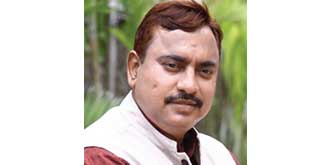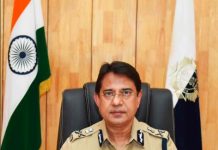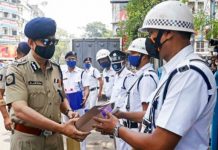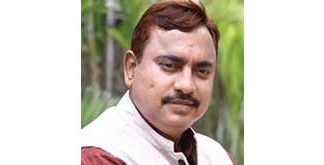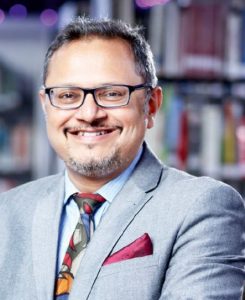
The last few months have turned the world upside down, including that of education. COVID-19 has forced students looking to study abroad to recalibrate their plans, international researchers to adapt their timelines. Children and young people studying English language and acquiring soft skills necessary for the world of work have had to adapt to online learning along with their teachers and instructors in a very short time.
British Council is the UK government’s international institution for education and cultural relations, and we are present in over 100 countries and territories. India is a key partner for the UK, and British Council has been in India for over 70 years, supporting India’s knowledge ambitions and economic growth. India has the largest education system in the world, with over 350 million of our 1.30 billion people under the age of 23 and in school or an institution of higher and technical education. No wonder, India is British Council’s largest operation in the world.
The focus of our work in Higher and Technical Education is towards global collaboration in student mobility, international faculty, joint research and sharing of best practice and insights on policy in those areas.
Education and research are strong pillars of a successful India-UK relationship. The UKIERI programme has allowed the UK and Indian government stakeholders to work closely in the area of higher education – internationalisation of Indian higher education institutes (HEIs) and enabling student exchange – with great success.
The UK is now India’s second biggest international research partner – and the largest in Europe – with joint research expected to be worth £400 million by 2021. UK-India co-authored academic articles are more impactful than those produced alone, and those India produces with the US, Germany and Japan. UK-India collaborations produced 12,068 co-authored publications between 2015 and 2018, which represents a 23.4% growth over the period.
The British Council supports better learning outcomes for Indian students. One of the ways we do this is by working within school systems in India to support the development of high-quality English language teaching to improve employment opportunities and widening access to education. In the last decade, British Council has partnered with 14 state governments to train over 1 million teachers of English. It is estimated that these teachers teach more than 35 million learners across the country annually.
Last year, we also had a group of leaders from 21 of the UK’s top universities in India, supported by UKIERI, talking to higher education leaders and policymakers here.
The UK also offers a host of scholarships and financial support with close to 500 scholarships available from the universities, UK government and British Council. This includes GREAT Education Scholarships, Commonwealth Scholarship and Fellowship (CSFP), The A.S. Hornby Educational Trust scholarships, Charles Wallace India Trust Scholarships, Newton Bhabha Fund PhD Placements, and Chevening Scholarships. Due to the COVID situation, students are encouraged to visit our website for latest scholarship information at www.britishcouncil.in/
The ‘New’ Normal
It is a crucial time for students as their education plans have been affected due to the impact of COVID-19. British Council ensured we provide credible, transparent and timely information to students, parents and consultants so that the dreams and aspirations of thousands of students are not compromised. We have conducted two Virtual Study UK Fairs to bring together UK Universities and students into a common virtual platform so that anxieties on both sides are addressed. On December 4 , 2020, we had 47 UK Universities meeting students and parents to share information on courses starting from January 2021 onwards. We have also announced GREAT Scholarships for Postgraduate students across multiple subjects across 30+ UK Universities. India has been offered the maximum scholarships this year in recognition to the quality of students and diversity of subject areas.
Work after studying in the UK
From summer 2021, the Graduate Route will enable students to stay in the UK and work, or look for work, at any skill level for two years after graduation for undergraduate and master’s students. International students who complete a PhD can stay in the UK for three years after study. The Graduate Route will be available to international students who successfully complete their degree at undergraduate level or above at a UK Higher Education Provider with a track record of compliance by summer 2021, or after. Students beginning their studies in 2020 will be able to benefit from this new Route, even if they begin their degree through distance learning. As long as you arrive in the UK before 6 April 2021, you will be eligible to apply for the Graduate Route. This is a fantastic opportunity for international students that will help them take their first steps into employment after graduation in the UK.
Teaching English online
Our Teaching Centre took all its courses online as a response to the pandemic, ensuring that the lockdown didn’t halt the learning. We also introduced a new online learning platform for Young Learners enabling them a seamless learning experience. Ensuring Child protection has always been a focal point for British Council so various checks and assessments were done to ensure the same for our learners.
- Over 2,500 students enjoyed the online Summer School courses.
- We had over 3,500 young learners from all over India joining over 5,000 courses with us post lockdown.
- Digital Library membership: Knowledge, Information and Entertainment unlimited. Bulk membership offers are available for students and faculty.
West Bengal
British Council signed a comprehensive MoU with the Government of West Bengal in the presence of honorable Chief Minister Ms Mamata Banerjee in July 2018. The MoU aims to strengthen the institutional and individual links between Britain and Bengal. Through this MoU, we have promoted Durga Puja as an international tourist destination by presenting a photography exhibition of Bengal’s Durga, as part of the Totally Thames Festival on the South Bank of London in August that year. Working closely with the Department of Tourism, British Council has completed a comprehensive study of the creative industries around Durga Puja that was put together by Queen Mary University of London and IIT Kharagpur, with additional inputs from Smart Cube.
At the start of the lockdown we responded quickly to a request from West Bengal Board of Secondary Education and presented the British Council way of learning English on ABP Ananda and the programme reached over 70 lakh students and parents across the state, and has notched nearly 14,000 views on YouTube. English language training for new batches of WBCS executive cadre officers and other branches of the state civil service continues, with 329 officers of revenue, accounts and audit services trained last year.
Working with the Department of Technical Education, Training and Skill Development, British Council is set to train 154 master trainers and 14,000 students across the state.
Our work in arts and culture
The pandemic has proved the most difficult time for the creative sector and for artists and creative professionals, and believe that culture connects us and at this time of uncertainty this is more important than ever. We’re committed to ensuring that partners, artists, participants, and audiences in India have access to arts and cultural connections over the long-term with the UK. Through new approaches to our work, we aim to continue to provide dynamic opportunities for artists and creative sectors around the world during a difficult and unpredictable time.
The Taking the Temperature Report has been developed in partnership with the British Council, Federation of Indian Chambers of Commerce and Industry (FICCI) and the Art X Company. It records the impact of the COVID-19 pandemic on the creative economy in India and provides valuable insights on:
- depth and scale of impact of the pandemic on creative sectors, arts companies and individual artists, managers and stakeholders, and compares developments and change over a sustained period from March 2020 to October 2020
- systemic actions being taken to strengthen the creative economy, during and post COVID-19 and
- make recommendations for the future development of the creative economy.
COVID-19 allowed us to take our work in Arts online. Very recently, we commemorated the life and achievements of Soumitra Chattopadhyay through a global programme in partnership with the Bengal Heritage Foundation, a diaspora organisation of Bengalis living and working in the UK, Indian High Commission UK and Nehru Centre London. With over 11,500 views from all across the world, that programme was probably the largest global tribute paid to one of the last Renaissance men from Bengal.
While COVID-19 has disrupted many facets of life as we knew it in 2019, the crisis has also triggered many innovations. From British Council, we are very proud to have continued to support the knowledge aspirations of young people from India to achieve the very best for themselves and their communities and connecting them to opportunities and creativity in the UK in a mutually beneficial manner. <
List of useful websites:
Study in the UK: https://www.britishcouncil.in/study-uk
Learning English: https://www.britishcouncil.in/english
Digital library: https://www.britishcouncil.in/library/online-library
For UK India research opportunities: www.ukieri.org/
Arts: https://www.britishcouncil.in/programmes/arts
English language teacher education: https://www.britishcouncil.in/programmes/english
Higher education: https://www.britishcouncil.in/programmes/higher-education
Take IELTS exam: https://www.britishcouncil.in/exam/ielts
Dr Debanjan Chakrabarti is Director British Council, East and Northeast India. He has over 18 years experience of leading international programming in English language, research, education and culture between India and the UK. A triple gold medalist in English literature from Jadavpur University, Debanjan received a Felix scholarship for his PhD from the University of Reading, UK. He started his career as a journalist with The Telegraph and has taught English and films at Visva Bharati and at the University of Reading, UK. He is a very keen sportsman.

